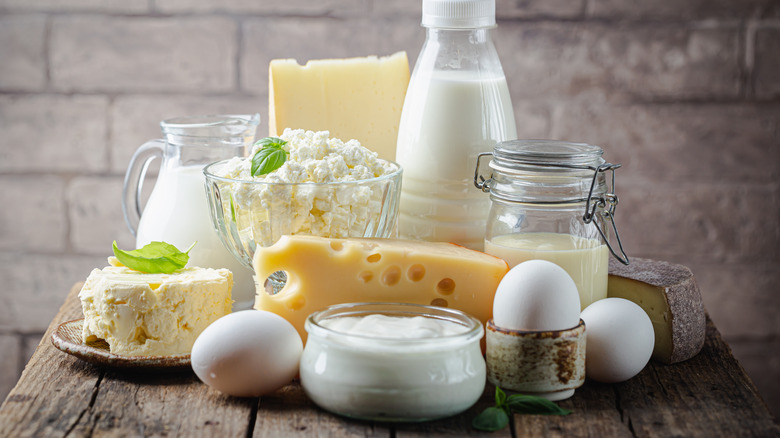How To Bake Scalloped Potatoes Without Curdling The Milk
One of the most frequent obstacles scalloped potatoes lovers encounter in search of smooth creamy perfection is the milk curdling. Lumps of cottage cheese-like curds might be appetizing eating cottage cheese, but it's not what the mouth expects when eating scalloped potatoes. Baking with milk is not without its perils and there are two reasons for this: Heat and the type of dairy you use.
As it turns out, the biggest nemesis to this dish is high heat. Low and slow is the way to go when making scalloped potatoes. It will produce a tender, flavorful potato; however, making certain the heat is right is just step one. Milk curdling is also tied to how much fat your dairy contains. If you are baking scalloped potatoes, you need to go all in and use whole milk, cream, or half-and-half; anything less, and your taste buds will be experiencing lumps and bumps.
Make a cheese sauce
Why does curdling happen with nonfat or 2% milk? Milk is an emulsion made up of butterfat, protein, and water. High heat temperatures, particularly when lower-fat dairy options are involved, break the emulsion apart, which in turn causes the proteins to fold together and stick to create lumpy curds. High heat also tends to change the taste and color of your milk, which is why you should never boil milk or heat it too quickly.
But using cream or other fat-rich milk can help eliminate this worry altogether because they contain higher levels of butterfat that help prevent the proteins from clumping. That said, baking with these full-fat dairy options is not a guarantee your milk will not curdle. Instead, it will make the problem less likely.
Of course, if you are a fan of low-fat milk and cheese in your scalloped potatoes, you can heat-proof your dish before it hits the oven. Transform the cheese and the milk into a nice, creamy sauce similar to how you make a sauce for your mac and cheese. Doing this will not only ensure your milk doesn't curdle but result in a velvety smooth end product.

